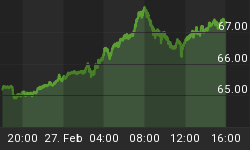This week all eyes are on Greece and Italy, which is reasonable since they're likely to be pretty entertaining. But as incredible as it sounds, PIIGS country sovereign debt might not be the biggest banking-system threat on the immediate horizon. It turns out that the largest European banks have held onto -- and apparently failed to mark down -- a mountain of crappy paper from the housing bubble. From today's Wall Street Journal:
European banks are sitting on heaps of exotic mortgage products and other risky assets that predate the financial crisis, adding to pressure on lenders that also are holding large quantities of euro-zone government debt.
Four years after instruments like "collateralized debt obligations" and "leveraged loans" became dirty words because of the massive losses they inflicted on holders, European banks still own tens of billions of euros of such assets. They also have sizable portfolios of U.S. commercial real-estate loans and subprime mortgages that could remain under pressure until the global economy recovers.
While the assets largely originated in the U.S. financial system, top American banks have moved faster than their European counterparts to rid themselves of the majority of such detritus.
Sixteen top European banks are holding a total of about €386 billion ($532 billion) of potentially suspect credit-market and real-estate assets, according to a recent report by Credit Suisse analysts. That's more than the €339 billion of Greek, Irish, Italian, Portuguese and Spanish government debt that those same banks were holding at the end of last year, according to European "stress test" data.
Many are holding tens of billions of euros of bonds issued by financially shaky countries. They are holding hundreds of billions more in loans to customers in those same countries, which are likely to go bad at an increasing clip if Europe's economy continues to struggle.
The large amount of structured-credit assets still on European banks' books "clearly heightens the importance of capital that banks need," said Kian Abouhossein, head of European banks research at J.P. Morgan. Until now, "they just haven't taken the hits."
Banks in the U.K., France and Germany are the biggest holders of such assets, even after chipping away at their exposures. The four biggest British banks reduced their holdings by more than half since 2007, while four French banks trimmed theirs by less than 30%.
Barclays PLC, for example, is sitting on about £17.9 billion as of Sept. 30, down from £23.9 billion at the start of the year. The assets, which landed on the giant U.K. bank's books before mid-2007, include collateralized debt obligations, composed of securities backed by assets like mortgages, commercial real-estate loans and leveraged loans that helped finance boom-era corporate buyout deals. Barclays executives say they have made good progress reducing their portfolio by selling assets or letting them mature.
At roughly €28 billion, Crédit Agricole SA has the biggest portfolio of such assets among French banks, according to Credit Suisse. The bank's June 30 financial report includes €8.6 billion of CDOs backed by U.S. residential mortgages.
On top of that, Crédit Agricole also has at least €1 billion of U.S. mortgage-backed securities, some composed of subprime loans. With the U.S. real-estate market still hurting, further losses are possible in all these securities.
A Crédit Agricole spokeswoman declined to comment.
Legacy assets are also haunting Deutsche Bank AG. The Frankfurt-based bank is holding €2.9 billion in U.S. residential mortgage assets, including subprime loans. It has an additional €20.2 billion tied up in commercial mortgages and whole loans. The bank says it has hedged nearly all of its residential mortgage exposure.
Analysts at Mediobanca estimate that Deutsche's exposure to such assets amounts to more than 150% of its tangible equity--a key measure of its ability to absorb unexpected losses.
Some thoughts:
Here's the crucial sentence: "Many [European banks] are holding tens of billions of euros of bonds issued by financially shaky countries. They are holding hundreds of billions more in loans to customers in those same countries, which are likely to go bad at an increasing clip if Europe's economy continues to struggle."
In other words, these banks are on the hook not just for, say, Greek government debt, but for securities built from Greek private sector real estate debt. So the austerity measures now being imposed on the PIIGS countries might or might not be good for public sector balance sheets, but will -- if they slow the PIIGS economies -- be horrendous for local real estate projects. The fact that the big European banks are actually more exposed to old-style toxic real estate securities and their related derivatives means that even if the EU miraculously solves the sovereign debt crisis, the balance sheets of these banks could still implode -- as a result of the austerity plans.
Another interesting sentence: "[Deutsche Bank] says it has hedged nearly all of its residential mortgage exposure." It's amazing that banks still present their credit default swaps as a valid type of insurance. The fact is that they're actually a huge threat to the very investments they're designed to protect, because asking the guarantor (i.e. the counterparty) to make good on the policy risks bankrupting them, crashing the banking system and making the crappy mortgaged-backed paper even less valuable. So no, Deutsche Bank, you're not hedged and everyone who understands these markets knows you're either delusional or dishonest.















